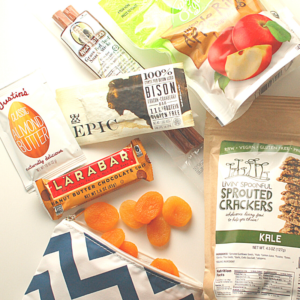How to Find Local Pastured Meat

This post may contain affiliate links, which means I make a small commission at no extra cost to you.
See my full disclosure here.
I get it. Not everyone can or wants to raise their own chickens, pigs, or cows. Thankfully it’s now easier than ever to find local pastured meat.
Of course, if you’re in the northern Virginia area, we’d love to be your source for local pastured meat! Sign up here to join our list of farm customers. But for everyone else, I’ve got tips for tracking down a top quality source for local pastured meat.
How to find local pastured meat
If you don’t know a local farmer raising pastured meat and following sustainable practices, here’s how to find one…
1. Visit a local farmers market.
Believe it or not, it’s a great place to meet farmers! <wink> The closer you live to a city, the easier it is to find a great farmers market.
2. Ask at a local health foods store.
A good health foods store should stock quality meats from local farms. Even if the store doesn’t carry meat, they should be able to connect you with someone who knows where to find it.
3. Ask your crunchy friends.
You do have crunchy friends, don’t you? They’re sure to recommend a great source for local pastured meats.
4. Find a good farm to table restaurant.
Eat there, and look (or ask) for a list of their partner farms.
5. Ask a natural practitioner
Do you see a holistic doctor? A naturopath? A midwife? A chiropractor? These are the people who tend to be picky about nutrition and there’s a good chance they can recommend sources for local pastured meats.
What to ask your farmer
Once you’ve identified a local farmer or two, it’s time to make sure you’re comfortable with their farming practices. Whether you’re able to find one farmer offering all the products on your list or whether you buy eggs from one farmer and meat from another, here’s what to ask to make sure you know exactly what you’re getting.
- Food: What do the animals eat?
- Home: What are the animals’ living conditions?
- Health: How are animals treated for illnesses and pests?
- Handling: Who processes their meat, and how?
- Tours: Are customers permitted to tour the farm or facilities?
Basically, you want the animals to live “naturally”, to do the things they’re supposed to do and eat what they’re intended to eat. It’s best when they can forage for their natural foods and the farmer moves them through pasture on a rotational schedule.
Ideally, you should also look for a policy of zero synthetic medications, minimal processing, and you want the farm to have an open-door policy for customers to tour the property.
When you’re considering a source of local pastured meat (and eggs), here are a few things to look for…

Eggs
- Food: Laying hens should eat grass, weeds, bugs, and non-GMO chicken feed.
- Home: Free range is best, but a chicken run with regular access to vegetation and insects is okay.
- Health: When chickens eat the right stuff and live in the right habitat, they need very little healthcare. The only thing we give our chickens is essential oils. Yes, really! Read more here: Top 8 Essential Oils for Chickens.
- Handling: Do the eggs come washed? If so, you’ll probably want to keep them in the fridge. If your eggs come unwashed, they are safe to store without refrigeration. It’s good to ask about typical turnaround time: how old are the eggs?
Poultry
- Food: Meat birds should eat grass, weeds, bugs, and non-GMO chicken feed.
- Home: Pastured poultry should be pastured! They should live on the pasture from about 3 weeks of age, moving twice per day to a fresh patch of grass.
- Health: Again, we use only essential oils. No antibiotics, no hormones, no nothing.
- Handling: Does the farmer process poultry onsite or take it elsewhere to be processed? Are the birds chilled for at least 24 hours? (If pastured poultry is cooked or frozen too quickly, the meat will be tough.)
Pork
- Food: Pigs eat anything and everything! A combination of some or all of the following is ideal: grass, plants, nuts, kitchen scraps, meat, milk, whey, and non-GMO pig feed. Acorn finishing is a plus.
- Home: Pigs should live on pasture (with shade available) or in the woods.
- Health: The only intervention our pigs needed was diatomaceous earth on their sunburned ears (because our pasture has almost zero shade and we’re still working on a good method for providing the shade that pigs need).
- Handling: Most farmers must take their pigs to be processed by an approved facility in order to sell the meat. You may want to ask about added sausage ingredients.
Beef
- Food: Beef cattle should eat grass. In my opinion, that’s all they should eat, but some folks prefer their grass-fed beef to be grain finished. It’s up to you, but you’ll want to clarify with the farmer.
- Home: Cattle should be rotated through pasture. In an ideal permaculture situation, chickens and pigs will follow cattle in a carefully orchestrated sequence.
- Health: Most properly raised animals require little to no medical intervention. Antibiotics and hormones should definitely be avoided.
- Handling: Similar to pork, beef is almost always processed away from the farm in an approved facility.
Tips for purchasing local pastured meat
1. Buy in bulk
The most cost effective way to purchase high quality meat from a local farm is to buy a quarter, half, or entire animal. You’ll receive all the cuts and the per pound price will be less than if you were to buy it a few packages at a time.
The cheapest way to eat pastured poultry is to buy whole birds. If you’ve never cooked a whole bird, now’s a great time to learn! You can do it! Here’s my favorite, super simple method.
2. Ask about special discounts
One farm in our area offers occasional “freezer clean out” sales. When their freezers get too full, they invite farm customers to stock up on whatever’s in the freezers, at a discount.
3. Invest in an extra freezer
When it comes to stocking up on local meats and even produce, an extra freezer will serve you well and will pay for itself over time.
Chest freezers are usually less expensive and do well with storing meat long term. Upright freezers are usually more expensive but offer easier access to your frozen foods.
Use code ROOTSBOOTS10 to save 10% on my favorite organization system for chest freezers. It’s made a huge difference for us!
Have you found a good source for local meats? Are there many sustainable farmers in your area? Do you have access to a good farmers market or health food store?


Sign up NOW for my best tips delivered weekly to your inbox!
You’ll also get instant access to my library of free ebooks and resources.









Leave a Comment